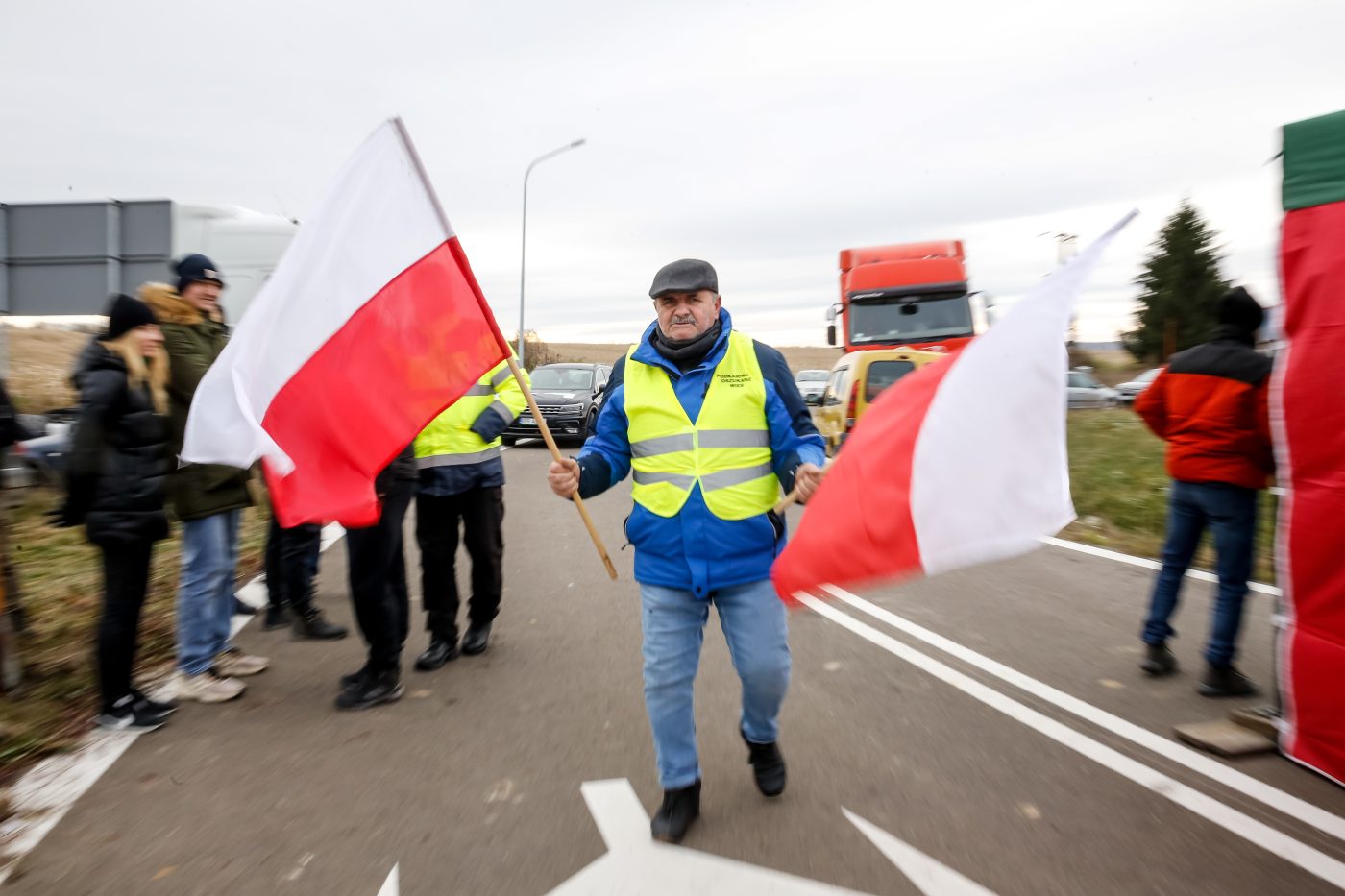As Ukraine fights for its survival against Russia’s invasion, it faces backstabbing from its supposedly friendly Western neighbors. Polish truckers have been blocking road crossings with Ukraine since November 6th. Now Slovakia’s truck drivers, aided by Hungarians, are blockading Vyšné Nemecké, the only crossing on the Slovakia-Ukraine border for heavy trucks. Although medical, military, and chilled food supplies are supposedly exempt, the chaos is hitting all shipments. More than a thousand trucks have been stranded for days, in queues that stretch for miles.
This hurts Ukraine economically, militarily, politically, and psychologically. Seen from afar, it is almost incomprehensible. Ukrainians are fighting and dying not only for their own freedom and security but for the future of all Europeans. Their defeat would spell disaster for everyone: NATO, the EU and all those organization’s member states. But the biggest and most immediate price would be paid by central and eastern Europe. A Ukrainian collapse would mean huge numbers of refugees and economic disruption. Worse, countries like Hungary, Poland, and Slovakia would then become the new frontline states, bearing the brunt of Russian subversion and provocations—and therefore be risky prospects for any outsider thinking about trade and investment.
Dig a little deeper, and the worries become clearer. Polish truckers have families to feed and businesses to run. They say they are being hit by cut-price competition from Ukrainians who have cheaper fuel and work under laxer rules about timekeeping. Poles also complain that Ukrainian customs officials treat them unfairly, making empty Polish and other European Union trucks wait for what should be instant customs clearance, while fully laden Ukrainian vehicles go first.
With strong political leadership, all this would be fixable. The problems with queues for trucks on the Ukrainian-Polish border could be fixed in a few hours by a frank, constructive ministerial summit. The economic pain being felt by Polish and other truck drivers requires targeted assistance: just the sort of problem where the European Union could be useful.
But it is no coincidence that these long-running disputes have boiled over at a time when the political climate is most unhelpful. Poland is beset by political uncertainty following the October elections, as the minority but still governing Law and Justice party tries to stop the coalition led by Donald Tusk from taking office. In Slovakia, the likely next government of Robert Fico harbors deep resentment of Ukraine. The Hungarian government’s hostile stance towards the authorities in Kyiv is notorious. Of Ukraine’s immediate neighbors, only Romania and Moldova remain dependably friendly.
Political clout and vision are sorely absent. The EU is bleating from the sidelines about the growing blockade on its external frontier. It should be banging heads together. Germany, long the continent’s sleeping giant, is ever further from taking on any kind of leadership. The United States in previous years might have been willing to step in to solve what seem, from Washington's, microscopic disputes. But decision-makers there are busy with Israel/Gaza, China, and other issues.
Inaction by the custodians of Europe’s security gives free rein to those who want to destroy it. In Poland, the far-right Konfederacja party has opportunistically jumped on the truckers’ bandwagon. The idea that Ukrainians are corrupt, treacherous, and ungrateful is being pumped out on social media. The same propaganda fans smoldering historical resentments about wartime massacres.
If appeals to solidarity are failing, try self-interest. Those harboring real or imagined gripes about Ukrainians should ask themselves how they will fare if Russia wins and the system that keeps them safe and free splinters. Would they rather be truckers in Belarus?
While they mull that question, Ukrainians are freezing, bleeding, and dying.
Europe’s Edge is CEPA’s online journal covering critical topics on the foreign policy docket across Europe and North America. All opinions are those of the author and do not necessarily represent the position or views of the institutions they represent or the Center for European Policy Analysis.





